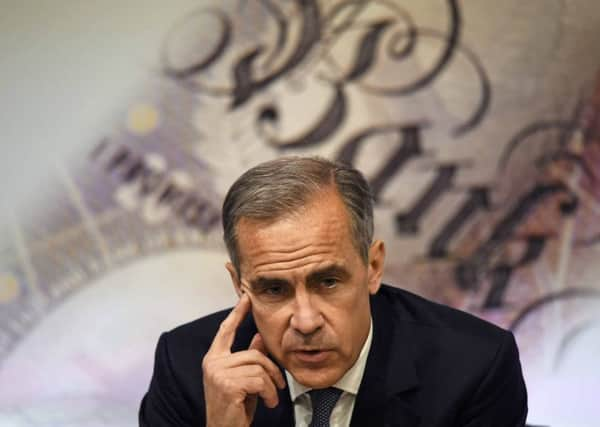Leaders: Carney has prepared the BoE well | Teen pregnancies


Considering this, the fact he warned yesterday that some risks have “begun to crystallise” in the post-Brexit era – coupled with a plunging pound and fluctuations in the stock markets – is worrying.
However, if you look at some of the things the Bank of England has done to guard against the possible implications of Brexit, they are huge.
Advertisement
Hide AdAdvertisement
Hide AdHe has prepared the markets for what he is going to do and for what has happened. That will actually lessen the impact because if they know it is factored in, then there is less shock and people do not panic as much.
The Bank of England has eased special capital requirements for banks, potentially freeing up £150 billion for banks to lend to British individuals and businesses.
Carney also tried to reassure, saying that plans drawn up in the event of a vote in favour of leaving the European Union were working. He even spoke of positive outcomes of the Brexit vote, saying that government and business borrowing costs had fallen and financial markets had remained relatively stable – in the FTSE 100 at least.
Yet we have got to wonder that, if he is talking about a threat to financial stability, maybe the Brexit effect is slightly more powerful – and more quickly – than some may have thought.
The risks Carney spoke of yesterday included fears over the commercial property market, which has already begun to reveal cracks.
Earlier this week, Edinburgh-based Standard Life Investments was the first to announce it has suspended trading in its UK property fund in the wake of the referendum result. It was followed yesterday by Aviva and M&G, which is part of Prudential and is the biggest property fund in the UK, which said Brexit had sparked a flurry of investors rushing to take their money out.
Aviva said that the decision had been taken due to “extraordinary market circumstances”, saying that if it did not freeze the fund, giving it greater control over its cashflow, it would have to start selling its property assets across the UK. And given the circumstances, it is not a good time to sell.
At a more local level, the Edinburgh Solicitors Property Centre (ESPC) yesterday also said it is seeing the Brexit effect, with the number of homes coming onto the market having fallen as a result of the vote.
Advertisement
Hide AdAdvertisement
Hide AdMeanwhile, the pound has fallen to a new 31-year low, hitting almost £1.30 to the dollar.
Of course, we all know, having been through previous recessions, that economies can eventually recover and we are not likely as a country to go bust.
However, what is absolutely clear is that there will be some kind of negative effect – and that we do not know how long or how deep it is going to be.
Cycle of poverty starting young
While it is welcome news that teenage pregnancy rates have dropped by 40 per cent in the past ten years, the statistics still make for grim reading.
The latest NHS figures show that young women who live in more deprived areas are five times more likely to become teenage mothers than those living in more affluent parts of Scotland.
This is yet another example of disparity between the rich and the poor – and marks a cycle of poverty from which it is difficult to break out.
Women who are pregnant at a young age are more likely to stay at home and care for a baby rather than complete further education or training. As a result, they have a higher chance of being unemployed and claiming benefits.
It is unclear why this disparity is the case. It could be a lack of education or it could be peer pressure which is making girls from more deprived areas more likely to become pregnant.
Advertisement
Hide AdAdvertisement
Hide AdIn addition, younger mothers are more likely to suffer from post-natal depression – and are also twice as likely to have an abortion than women living in more well-off areas.
We have heard a lot of political talk about the disparity between rich and poor and John Swinney has spoken about how it is a major priority for him to improve the situation.
These figures are a practical example of how social disparity at an early age can have a major effect on young people throughout their lives.
In many ways it is more vital to tackle this inequality than that in entry to higher education.